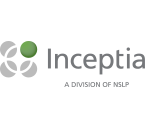Promoting Autonomy in a World of Over-Parenting, 9:45 - 10:45 am
By Brittany Hackett, Communications Staff
Walking the line between delivering good customer service and allowing parents to overstep is a challenge faced by financial aid administrators across the country, particularly with the growing number of helicopter parents sending their kids to college. Tuesday morning’s session focused on how aid offices can help overprotective parents let go of their students and help prepare them for life after college.
According to data presented at the session, 33 percent of millennials today say their parents are very involved in their job hunt process, and 1 in 10 say their parents have accompanied them to job interviews In fact, 3 percent of recent college grads report that their parents have actually sat in on a job interview.
Helicopter parents can be easy to spot, according to the presenters, who noted that often these parents exclude students from conversations about paying for college and other responsibilities the student needs to take on his or herself. These parents also often request information from the institution that they legally are not allowed access to.
“Developmentally when it might have been appropriate in K-12 [for parents] to do those things, it’s really not appropriate for them to be doing those things when [their kids] enter college,” Michiale Schneider of Great Lakes Higher Education Corporation & Affiliates said.
The challenge, the presenters said, is to help parents learn the new rules of being a parent to an adult student, and how their role in their child’s life will change during the college years and beyond. For example, in college the student is the primary point of contact for campus communications and it is up to the student to communicate the necessary information with his or her parent.
“This is an interesting generation that we are dealing with in our schools and colleges,” Vickie Crupper of the University of Michigan said. “This is a group of students who have always been protected by their parents, and their parents in many cases have always been required by law to protect them. How do we break the cycle of helping parents understand that they can protect them by letting them go?”
Session participants shared tactics and strategies they use on their campuses to help overprotective parents adjust their behaviors, including helping them learn to be coaches for their children so they learn to read through documents, file their own forms, and reach out for their own customer support needs.
A common analogy used when describing strategies was to encourage parents to remember when they taught their child how to drive: the student was the driver, the parent was the passenger who offered instruction and guidance. A similar dynamic is an effective way for a parent to provide support to their student.
Publication Date: 6/27/2017
Comments Disclaimer: NASFAA welcomes and encourages readers to comment and engage in respectful conversation about the content posted here. We value thoughtful, polite, and concise comments that reflect a variety of views. Comments are not moderated by NASFAA but are reviewed periodically by staff. Users should not expect real-time responses from NASFAA. To learn more, please view NASFAA’s complete Comments Policy.
Sponsors












You must be logged in to comment on this page.